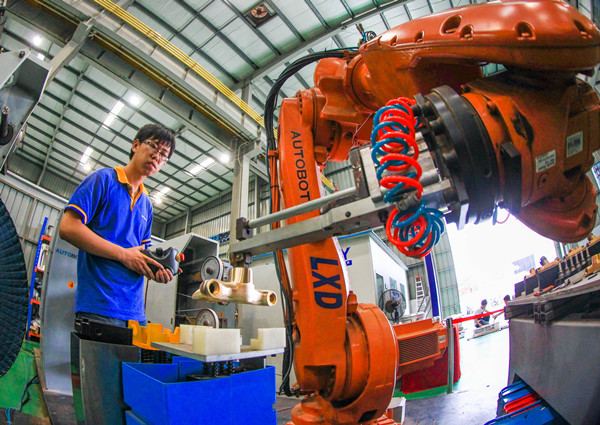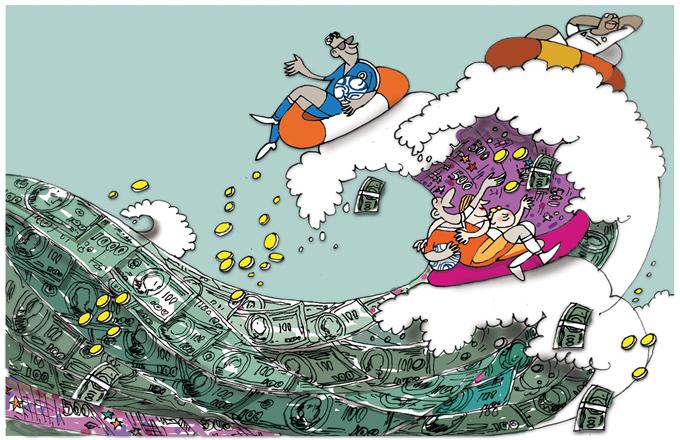Boost consumption growth by fostering innovative ideas
 |
|
A worker assembles a robotic arm at a factory in Foshan, Guangdong province. [Photo provided to China Daily] |
With consumption already contributing to about two-thirds of China's GDP growth, it is not surprising to see a huge shopping spree before and during Spring Festival, the single most important holiday for Chinese.
In recent years, Chinese online retailers have created special shopping days like "Double 11" and "Double 12" to promote sales in the periods between traditional holidays.
That China's biggest e-commerce giant Alibaba registered a record sale of 120.7 billion yuan ($17.78 billion) during its annual Singles Day shopping festival on Nov 11 last year speaks volume of the success of its innovative idea of a 24-hour shopping frenzy for consumers.
However, what impressed me most during this Spring Festival was the unprecedented convenience some Chinese e-business giants offered to consumers; they not only promised timely delivery but also actually delivered on time.
When I traveled back to Wuhan, Central China's Hubei province, for my family reunion right before Lunar New Year's Eve, the heavy smog engulfing the city forced the family members to buy an air-purifier as soon as possible. I hesitated for a while before making an online purchase, because many online retailers had stopped delivering goods before the holidays. Yet, to our surprise, JD.com, another Chinese e-business giant, delivered a huge box on our door the next morning, allowing us to enjoy the Spring Festival holiday with clean air.
I am not sure how much extra cost the e-retailer would bear for ensuring such timely delivery during the holiday. For instance, it may have to pay triple the usual amount to the courier. But as a consumer, I was not only happy to meet the urgent need for an air-purifier but also impressed by the company's effective implementation of the bold idea of timely delivery during Spring Festival, a move which few others have even thought of.
The courage to explore new business ideas that others may find outrageous or can hardly imagine explains why online shopping has been booming in China.
China's total retail sales in 2016 increased 10.4 percent year-on-year to 33.23 trillion yuan ($4.83 trillion). And it was a key driving force behind the second-largest economy's 6.7 percent year-on-year growth last year. But even more spectacular is the growth of online sales in China, 26.2 percent year-on-year to 5.16 trillion yuan.
It is unrealistic to expect the amount of online sales to continue to rise at the current pace. But it is possible that Chinese e-commerce giants will further expand their market shares through more innovative business models, technological application and marketing campaigns to boost overall consumption growth in the country.
A video recently released by Amazon demonstrated the new concept of convenience stores featuring artificial intelligence-powered technology that eliminates checkouts, cash registers and, more importantly, queues.
For many traditional brick-and-mortar retailers in China struggling to cope with intensified offline and online competition and changing spending patterns, the new business model that Amazon intends to introduce may be bad news. But for China's thriving e-businesses giants, this is a good time for learning. In fact, e-businesses' recent talk of the need to develop both online and offline retail suggests they are beginning to embrace this new change to make consumption even more convenient.
With China's per capita GDP reaching $8,000, still below the world average of about $11,000, not to mention the US' $57,000, the country has ample room for consumption growth in the coming years, which will benefit the most innovative businesses the most.
The author is a senior writer with China Daily.
zhuqiwen@chinadaily.com.cn



















